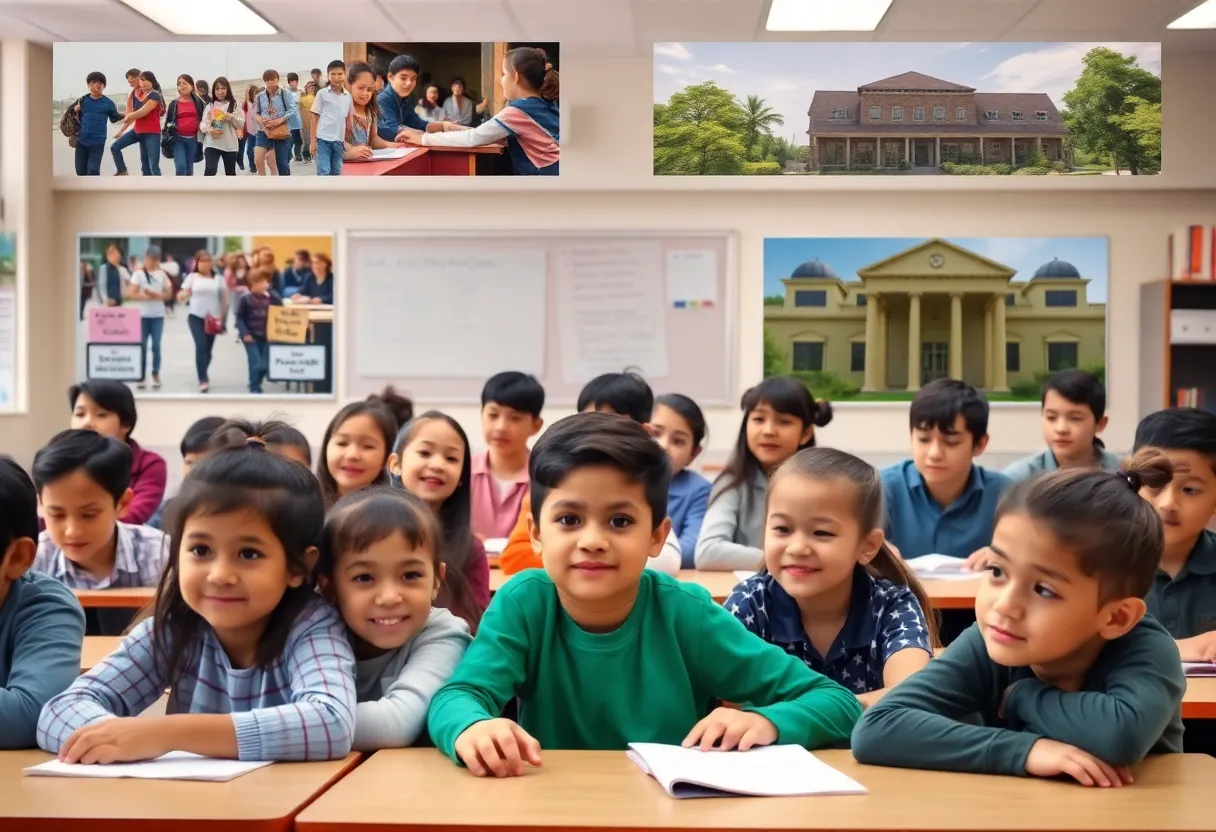News Summary
Arizona’s school voucher program, initiated in 2022, is under scrutiny as investigations reveal its negative impact on public schools. Originally aimed at helping families move children to better educational options, the program appears to strain funding for high-performing public schools, costing taxpayers nearly $1 billion. Evidence suggests many voucher recipients had already been in private education, raising concerns about the program’s true beneficiaries and its long-term sustainability. Governor Hobbs proposes limiting voucher availability amid growing criticisms of income inequality in educational opportunities.
PHOENIX — Arizona’s school voucher program, initiated by former Governor Doug Ducey in summer 2022, is facing scrutiny following a recent investigation that reveals significant negative impacts on public schools in the state. The program was designed to provide families with financial assistance to move children from underperforming public schools to private or homeschooling options. However, a significant number of families are redirecting funds to high-performing public schools, putting additional financial strains on these institutions.
The voucher program is projected to cost Arizona taxpayers approximately $1 billion in the upcoming school year. While Ducey promoted the program as a means to enhance educational options for students, the fallout has seen many public districts and charter schools grappling with funding shortages. This has led to layoffs and cutbacks, as public schools lose millions of dollars in state funding due to declining student enrollment.
Data indicates that as many as 45% of the nearly 87,000 students participating in Arizona’s voucher program had never been enrolled in public schools. This trend is particularly evident in five public school districts—Mesa, Deer Valley, Chandler, Peoria, and Scottsdale—many of which have been rated highly in terms of performance. Apart from Mesa, which received a ‘B’ grade, the other districts boast ‘A’ ratings, yet they continue to experience a troubling loss in student numbers.
Mesa has reported significant personnel reductions, with nearly 150 positions eliminated due to the decline in student enrollment. In addition, charter schools are also feeling the effects; Edkey Inc. experienced a loss of over 2,100 students to the voucher program after a partnership with a microschool company dissolved. Basis Charter Schools, known for exceptional educational outcomes, lost more than 400 students to the initiative.
State Schools Chief Tom Horne has pointed out that some parents appear to be migrating their children from schools led by what he describes as ‘left-leaning’ boards. This reflects a shifting political landscape regarding education, with increasing support for voucher programs from influential figures, including Donald Trump.
Criticism and Concerns
Challenges associated with Arizona’s expanding voucher program have drawn criticism from various quarters, including Governor Katie Hobbs, who has labeled the initiative as an “entitlement” that could jeopardize funding for other essential programs. Educational experts provide insights into the sustainability of the program, expressing concerns that it may drain state budgets in the long term as costs escalate.
Last year’s budget shortfall of $1.3 billion has been partially linked to the financial implications of the voucher program. Moreover, it has been noted that most children receiving vouchers were already in private schools or homeschooled prior to the program’s expansion, leading educational researchers to conclude that vouchers often serve to assist families who would have been able to afford private education without state support.
Social Impact and Future Outlook
Critics argue that universal vouchers contribute to a dual education system that undermines public schools, resulting in increased inequality among educational opportunities. The Arizona program appears to predominantly benefit more affluent families, as a significant number of voucher recipients come from wealthier backgrounds.
In response to the rapid growth and fiscal impact of the voucher program, Governor Hobbs has proposed measures to limit the vouchers’ availability, attempting to mitigate the financial pressures it imposes. However, this initiative has encountered resistance from Republican lawmakers who support the existing program. The ongoing debate underscores the complexity of education funding and the challenges inherent in balancing diverse educational options with the needs of public schools.
Deeper Dive: News & Info About This Topic
HERE Resources
GenTech Boosts STEM Education in Phoenix’s Balsz School District
Arizona Expands School Safety Program by Recruiting Retired Police Officers
Arizona Expands School Safety Program with New Legislation
Arizona Education Solutions Symposium Launches New Initiatives
Arizona GOP Proposes Controversial Link Between Teacher Pay and Vouchers
Governor Hobbs Champions Affordable Childcare in Arizona
Additional Resources
- South Dakota Searchlight
- Wikipedia: School Voucher
- 12 News
- Google Search: Arizona School Vouchers
- Click2Houston
- Google Scholar: School Vouchers
- Newsweek
- Encyclopedia Britannica: School Voucher Programs
Author: STAFF HERE PHOENIX WRITER
The PHOENIX STAFF WRITER represents the experienced team at HEREPhoenix.com, your go-to source for actionable local news and information in Phoenix, Maricopa County, and beyond. Specializing in "news you can use," we cover essential topics like product reviews for personal and business needs, local business directories, politics, real estate trends, neighborhood insights, and state news affecting the area—with deep expertise drawn from years of dedicated reporting and strong community input, including local press releases and business updates. We deliver top reporting on high-value events such as the Waste Management Phoenix Open, Cactus League Spring Training, and Arizona State Fair. Our coverage extends to key organizations like the Greater Phoenix Chamber of Commerce and Visit Phoenix, plus leading businesses in technology and healthcare that power the local economy such as Intel and Banner Health. As part of the broader HERE network, including HERETucson.com, we provide comprehensive, credible insights into Arizona's dynamic landscape.





